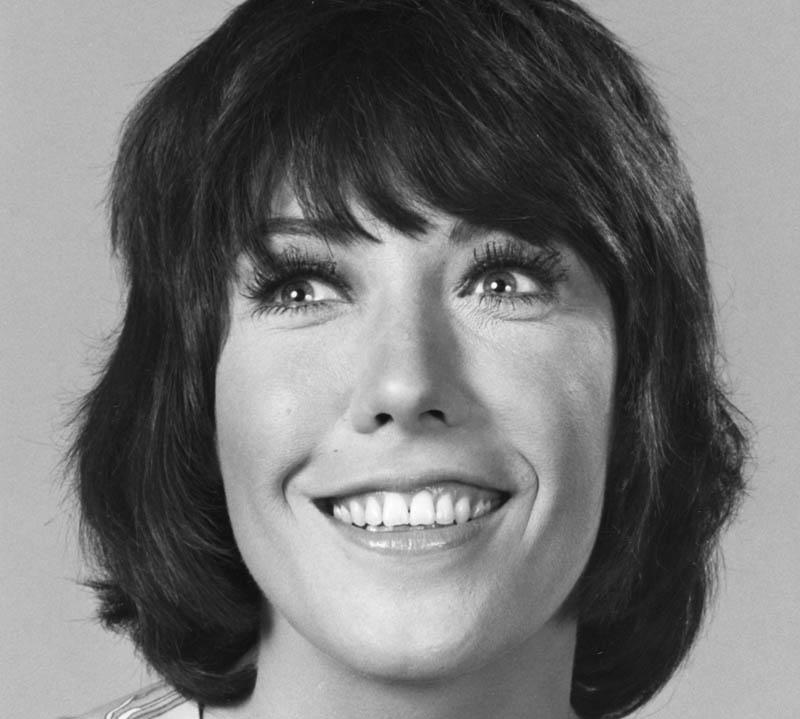When you think about the 1970s, it's hard not to picture Lily Tomlin as one of its most iconic figures. She wasn’t just a comedian; she was a trailblazer, a rule-breaker, and someone who made everyone laugh while also making them think. Her work during this era redefined comedy for women and set the stage for generations to come. Lily Tomlin wasn’t just a name; she was a movement, and her influence is still felt today.
Let’s be real here—Lily Tomlin didn’t just show up in the '70s; she dominated. She became a household name through her unique blend of humor, wit, and sharp social commentary. Whether it was her appearances on TV shows, her stand-up routines, or her collaborations with some of the biggest names in entertainment, Tomlin was everywhere—and people couldn’t get enough of her.
Her impact wasn’t limited to laughter alone. She used her platform to tackle serious issues like gender equality, societal norms, and even politics. In a world where women were often expected to stay quiet, Lily Tomlin wasn’t afraid to speak her mind. This article dives deep into her life, career, and the unforgettable moments that made her such a legend during the 1970s.
Read also:What Are Angel Numbers A Guide To Understanding Their Meaning And Messages
Table of Contents
Biography: Who Is Lily Tomlin?
Early Career: Setting the Stage for Stardom
The 1970s Breakthrough: How Lily Tomlin Made History
Iconic Characters: The Voices That Defined a Decade
Television Impact: Laugh-In and Beyond
Movies: From 'Nashville' to '9 to 5'
Read also:Chris Brown Lawsuit The Untold Story Behind The Legal Battles
Live Performances: Stand-Up and One-Woman Shows
Social Commentary: Using Comedy to Challenge Norms
Legacy: How the 1970s Shaped Her Career
Conclusion: A Lasting Influence
Biography: Who Is Lily Tomlin?
Before we dive into the 1970s, let’s take a moment to talk about who Lily Tomlin really is. Born on November 1, 1939, in Detroit, Michigan, she grew up in a working-class family with dreams bigger than her circumstances. Her journey from a kid with a knack for storytelling to a global comedy icon is nothing short of inspiring.
Biodata: Key Facts About Lily Tomlin
| Full Name | Lily Margaret Tomlin |
|---|---|
| Birthdate | November 1, 1939 |
| Place of Birth | Detroit, Michigan, USA |
| Occupation | Actress, Comedian, Writer |
| Spouse | Jane Wagner (married 2013) |
Tomlin’s early life was marked by creativity and curiosity. She developed a love for performing arts at a young age, often entertaining family and friends with her impersonations and quick wit. Her path to stardom wasn’t immediate, but once she found her voice, there was no stopping her.
Early Career: Setting the Stage for Stardom
Before the 1970s, Lily Tomlin was already building a reputation as a rising star in the comedy world. Her big break came in the late 1960s when she appeared on "The Tonight Show Starring Johnny Carson." Her performance left such an impression that it opened doors for her in Hollywood.
She quickly became known for her ability to create characters that were both hilarious and deeply human. This skill would later define her work in the 1970s, where she took center stage and became a cultural phenomenon.
The 1970s Breakthrough: How Lily Tomlin Made History
The 1970s were nothing short of magical for Lily Tomlin. This decade saw her rise from a promising newcomer to a full-fledged superstar. Her work during this time wasn’t just about entertainment—it was about breaking barriers and challenging the status quo.
Iconic Characters: The Voices That Defined a Decade
One of the things that made Lily Tomlin so special was her ability to create unforgettable characters. Characters like Ernestine, the sassy telephone operator, and Edith Ann, the precocious six-year-old, became cultural touchstones. These characters weren’t just funny; they resonated with audiences because of their authenticity and relatability.
- Ernestine: A sarcastic phone operator who skewered customer service with razor-sharp wit.
- Edith Ann: A pint-sized philosopher who delivered wisdom with a dose of innocence.
- Gertrude Stein: A drag queen whose flamboyant personality challenged gender norms.
Each character was a reflection of Tomlin’s talent for observation and her willingness to push boundaries. They weren’t just jokes; they were commentary on the world around her.
Television Impact: Laugh-In and Beyond
No discussion of Lily Tomlin’s 1970s career would be complete without mentioning "Rowan & Martin's Laugh-In." This groundbreaking show was the perfect platform for her talents. Her appearances on the show introduced her to millions of viewers and cemented her status as a comedy powerhouse.
But Tomlin didn’t stop there. She went on to host several episodes of "Saturday Night Live" and even had her own TV specials. Each appearance was a masterclass in comedy, showcasing her versatility and range.
Why Laugh-In Was So Important
"Laugh-In" wasn’t just a TV show; it was a cultural movement. It gave voice to the counterculture of the 1970s and allowed comedians like Lily Tomlin to shine. The show’s format, which relied heavily on quick sketches and one-liners, was tailor-made for her talents.
Movies: From 'Nashville' to '9 to 5'
While television was her primary medium, Lily Tomlin also made waves in the film industry during the 1970s. Her role in Robert Altman’s "Nashville" earned her critical acclaim and an Academy Award nomination. It was a testament to her acting chops and her ability to hold her own in serious roles.
Later in the decade, she starred alongside Dolly Parton and Jane Fonda in "9 to 5," a movie that became a feminist classic. The film tackled workplace issues with humor and heart, and Tomlin’s performance was a highlight.
Key Movies of the 1970s
- Nashville: A sprawling ensemble piece that showcased her dramatic range.
- Silent Movie: A slapstick comedy that proved her comedic versatility.
- 9 to 5: A cultural touchstone that addressed workplace inequality.
Live Performances: Stand-Up and One-Woman Shows
Tomlin’s live performances were legendary. Her one-woman shows, like "Lily: Sold Out, Out of Control," were a mix of stand-up comedy, character sketches, and social commentary. They allowed her to connect with audiences on a more intimate level and showcase her full range as a performer.
These shows weren’t just entertainment; they were events. People came not just to laugh but to experience something meaningful. Tomlin’s ability to blend humor with substance made her stand out in a crowded field.
Social Commentary: Using Comedy to Challenge Norms
One of the most remarkable aspects of Lily Tomlin’s work was her willingness to tackle tough topics. Whether it was gender roles, societal expectations, or political issues, she used her platform to spark conversations. Her humor wasn’t just for laughs; it was a tool for change.
She wasn’t afraid to challenge the status quo, and her courage inspired others to do the same. In a decade marked by social upheaval, Lily Tomlin was a voice of reason and wit.
Legacy: How the 1970s Shaped Her Career
The 1970s were a defining period for Lily Tomlin. It was during this time that she established herself as a force to be reckoned with in the entertainment industry. Her influence extended far beyond comedy; she became a symbol of empowerment and innovation.
Her work during this decade laid the foundation for her future success and inspired countless others to follow in her footsteps. Even today, her contributions to comedy and culture continue to resonate with audiences around the world.
Conclusion: A Lasting Influence
Lily Tomlin’s impact on the world of comedy and beyond cannot be overstated. Her work in the 1970s not only entertained millions but also challenged societal norms and paved the way for future generations of performers. She proved that comedy could be both hilarious and meaningful, and her legacy endures to this day.
So, the next time you think about the 1970s, remember Lily Tomlin. Remember the laughter, the courage, and the change she brought to the world. And if you haven’t already, go watch some of her classic performances—they’re as relevant today as they were back then.
What are your thoughts on Lily Tomlin’s influence? Leave a comment below and let’s keep the conversation going. And hey, if you liked this article, don’t forget to share it with your friends!


